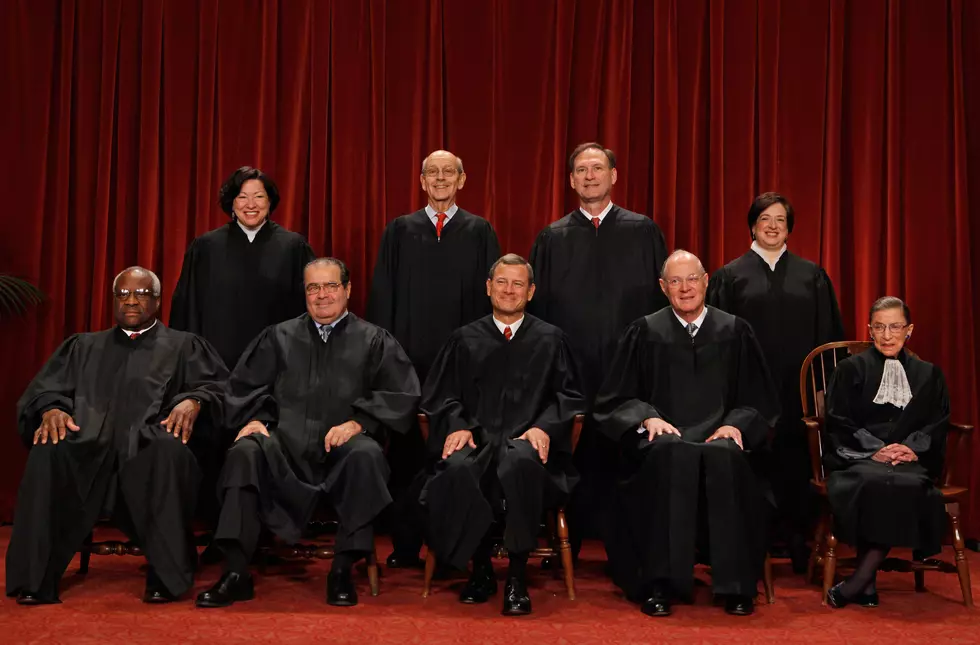
The Supreme Court: Emotion Verses The Law
There have been some historic decisions handed down by the Supreme Court of the United States in recent days.
The nine justices of the Supreme Court are Chief Justice John G. Roberts, Justice Clarence Thomas, Justice Antonin Scalia, Justice Anthony M. Kennedy, Justice Ruth Bader Ginsburg, Justice Sonia Sotomayor, Justice Stephen G. Breyer, Justice Samuel A. Alito, Jr., and Justice Elena Kagan.
Interpreting The Law
Courts of law are designed to assess the rule of law to legal arguments. One attorney argues for a position and another attorney argues for the opposite position.
Judges do not rule based on right or wrong, good or bad, black or white, but on how the rule of law applies to the arguments presented.
Most of us would find it very hard to leave our personal beliefs at the door and rule objectively on litigation placed before us.
It is the rule of law the removes that burden of personal beliefs off the shoulders of the justices as they deliberate toward a ruling.
Liberal vs. Conservative
Very few decisions are 9-0 although there was a couple in this past session.
Most of the time the court is split which leads the populous to believe that some emotion, or conservative vs. liberal, viewpoints must enter these rulings.
The justices most often described as conservative are Chief Justice John G. Roberts, Clarence Thomas, Antonin Scalia, and Samuel A. Alito, Jr.
On the liberal side are Ruth Bader Ginsburg, Sonia Sotomayor, Stephen G. Breyer, and Elena Kagan.
So from that standpoint the court is pretty evenly divided for those who believe justices bring some political bias to the bench.
The last two justices appointed by President Obama, Sotomayor and Kagan were considered liberal in most circles and replaced other liberal leaning judges so the court was basically unchanged.
The swing, or “wild cat” vote often falls on Justice Anthony M. Kennedy. Kennedy who has a history of voting with both conservatives on some issues and liberals on others.
Do Presidential Appointments Matter?
Of course they do. The next president will probably replace at least one justice and possibly two. Ginsberg has not been in the best of health and may decide to step down in the near future.
Are justices who are appointed by presidents expected to vote with that president’s views and beliefs?
Bush appoints Roberts and his decisions preserved Obamacare three times. He also supported gay marriage. I guess the answer would be no.
Some Final Thoughts
Gay Marriage, Roe vs. Wade, EPA, Obamacare, and Citizens United are all very emotional rulings by the high court. Did the courts follow the rule of law in each of these decisions? Opinions vary greatly.
In 1857 a Supreme Court ruled that black people could not be given citizenship and could be considered property in the Dred Scott decision. It was the law of the land. But no longer, thanks to the 13th Amendment.
Your thoughts on Supreme Court decisions? Comment below.
More From KMMS-KPRK 1450 AM






![[POLL] Will You Got Back to Restaurants and Bars When They Open?](http://townsquare.media/site/8/files/2017/04/Adam-Berry.jpg?w=980&q=75)
![[POLL] Should wearing a mask in public be mandatory?](http://townsquare.media/site/8/files/2020/04/GettyImages-1213079528.jpg?w=980&q=75)

